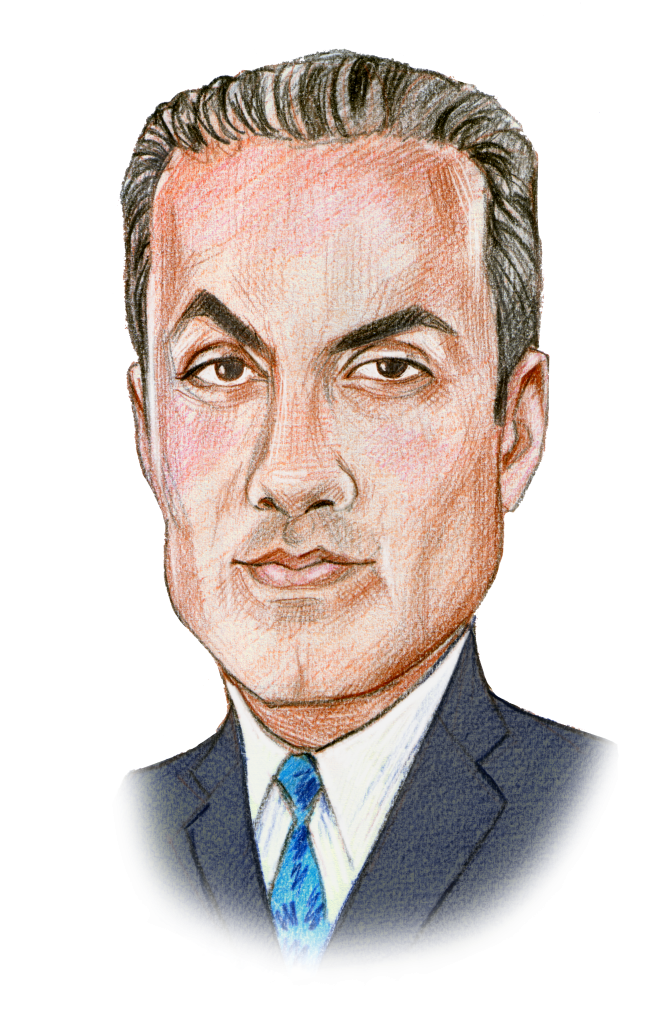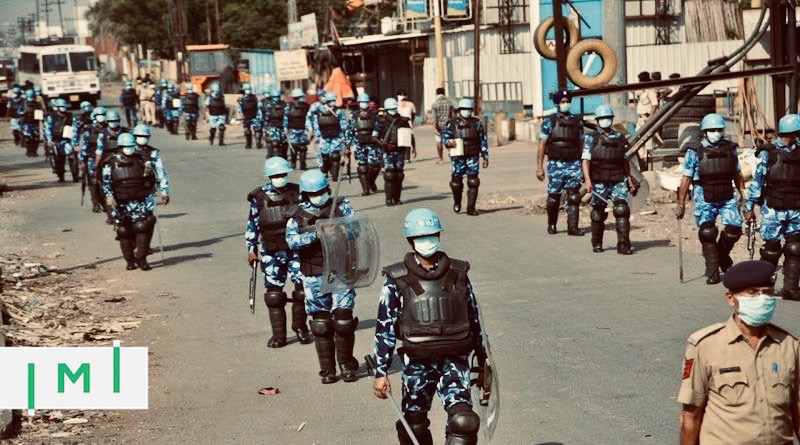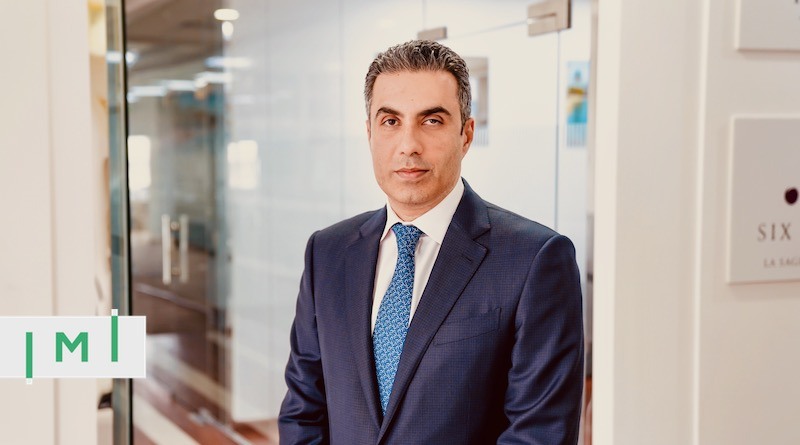Asaria: 6 Characteristics of Citizenship by Investment in the New World Order

Cross-Examination
With Mohammed Asaria
The CBI-market’s leading hotel developer offers a global perspective on the critical issues confronting the industry.
“After hopelessness, there is so much hope and after darkness, there is the much brighter sun” [Rumi]
The past few days have seen a flurry of commentaries here on IMI, which prophesise the demise of certain specific citizenship by investment jurisdictions and the increase in popularity of others. Until the world has meandered through this period of uncertainty, such specific judgments are premature. I am unable to contemplate with any certainty what the world will look like (economically, politically or socially) when we emerge from the challenges of the Corona pandemic.
An audio version of this article is available in the IMI Club Members’ Lounge
The only conclusion that can be drawn at this stage is that, in the intervening period, there will be volatility and stresses across all geographies and all aspects of human life.
Unable to find more eloquent words to describe the current situation, I borrow from Mr Kissinger’s (Secretary of State and National Security Advisor in the Nixon and Ford administrations) recent opinion piece in the Wall Street Journal [3 April 2020 – The Corona Virus Pandemic Will Forever Alter the World Order]:
“Now, we live an epochal period. The historic challenge for leaders is to manage the crisis whilst building the future. Failure could set the world on fire.”
The Western World is less than three months into the Corona crisis, yet already we have seen more unemployment than at any point in my lifetime; 16 million Americans have lost their jobs in the past three weeks. These massive figures will continue to rise; they justify the trillions of dollars of economic stimulus injected into the US economy required to prevent a wide-scale global economic collapse.
Every major economy (China is the exception) is in triage-mode and almost all have come to a sudden economic halt. Whilst by no means perfect, the welfare system to which the vulnerable in the developed world have access at least exists. The number of individuals relying on goodwill and state support is unprecedented. A year-on-year increase of 850% in activity was reported at certain food banks in the United States last week. Notwithstanding – though expected – convenience store robberies have become a frequent daily occurrence.
Investment migration source markets will be the worst hit
The pandemic has yet to fully take hold in emerging markets (where the majority of second citizenship seekers are based). We pray a cure is found before this catastrophe unfolds. If matters continue unchecked, the impact on these economies and societies will be devastating.
By way of example, a recent Dun and Bradstreet report forecasts the poverty rate in Pakistan in Q2 increasing from 23.5% to 44.2%. Similar projections have been issued for countries across Asia and Africa. There are no established welfare systems for these needy individuals to fall back on. In no time at all, inadequate public healthcare systems will be overwhelmed, food scarcity will become rife and depreciation in emerging market currencies coupled with capital controls is inevitable.
Emerging-market governments lack the tools required to save their economies with fiscal stimulus. Their botched attempts will lead to hyperinflation and crippling personal taxation on the wealthy. Civil unrest seems inevitable. It would be foolhardy to ignore Mr Kissinger’s words and live in a vacuum of hope. The sun will be brighter provided there is a strategy to navigate the darkness.
Second citizenship: From luxury to necessity
For the sake of humankind in the developing world, I pray I am wrong and summer will starve the Coronavirus into extinction, in which case I will be guilty of unintended scaremongering and glad to apologize. However, given no one has a crystal ball (least of all high net worth individuals), the worst must be assumed and high net worth families must ensure their families’ destiny.
The Corona pandemic has crystallized the importance of citizenship by investment as an asset class and it is no longer a luxury for high net worth individuals in these developing economies. It is a necessity. Now is not the time to collect yet another degree in hindsight by deferring this decision any further. League tables of travel bans imposed on certain citizenships (the Chinese passport has secured pole position) are now referred to as frequently as the conventional passport indices that measure the opposite.
The pandemic, whilst cementing citizenship by investment as an asset allocation strategy for the privileged, will also take its toll across the citizenship by investment industry. The middle classes in emerging markets will be all but wiped out and with this will come the destruction of a significant number of potential investors, especially those who are price-sensitive. These individuals are now focused on survival. Discretionary spending has been removed from this demographic’s vocabulary.
The industry will return to the domain of the privileged. These investors will focus on:
- Cost-effective solutions – programs with price points in the millions will lose their allure. This level of capital, whilst available, can be deployed more effectively.
- Time – programs with lengthy residency requirements before the award of citizenship will simply not work. Efficiency and expediency are required.
- Protection from predatory taxation (perhaps citizenship-based) from an investors’ state of origin – this is also closely intertwined with the previous paragraph
- Protection of civil liberties – high net worth individuals in certain countries are extremely concerned that technology (now that it has been shown to exist) will be used to infringe on their legitimate activities by certain states in the post-Corona world and second citizenship may provide some form of protection against over-reaching home states.
- Access to a substantial economy – the Corona pandemic has created high walls around the established economies of the world. Will there be a reversal in globalisation? Citizenship programs from stable (politically neutral) countries that provide access to developed economies – eg., the US (through Grenada or Montenegro via an E2 visa), Southeat Asia (Singapore), Cyprus and Malta (Europe) will retain their attractiveness, especially when a citizenship seeker’s home economy is in a long term depression.Economic migration will become a key decision matrix in the selection of a citizenship by investment jurisdiction.
- Ability to reside in a country with a first-world working health care system – unfortunately this objective may not be reconcilable with the previous paragraphs.The healthcare systems of Europe and the US have disappointed (of course, they will still fare much better than those of emerging markets) and, as such, a second citizenship may need to be combined with a residency strategy in countries that have fully supported its citizens and residents through these time of stress and provided the highest quality healthcare.
COVID-19 will create a new order in our industry; time is required for the process of natural selection to be completed. The projected yo-yo prevalence of the disease until a vaccine is developed will create continued stresses on economies. U, V, L, W have all been used to describe the recovery. Arguably, ECG is the correct epithet with second citizenship providing the emerging market high net worth individual the much-needed stent for his survival.
Mohammed Asaria is the Managing Director & Member of the Board of Range Developments. Mohammed graduated from Trinity College, University of Cambridge and practiced law for a number of years in the City of London. Thereafter, Mohammed joined HSBC in Dubai as an investment banker. Mohammed founded Range Developments in 2011. Range are the developers of the Park Hyatt St Kitts, Kempinksi Dominica, and the Six Senses Grenada.
Mohammed Asaria is the Founder and Managing Director of Range Devlopments.
Asaria is a graduate of Trinity College, Cambridge and practiced law with Lovells for a number of years in the City of London before joining HSBC, Dubai as an investment banker.
Asaria founded Range Developments in 2012 and in that time Range has become the leading Citizenship by Investment developer in the Caribbean. Range Developments opened the Park Hyatt St Kitts in 2017, Kempinski Dominica in 2019 and is currently developing the Six Senses in Grenada.



